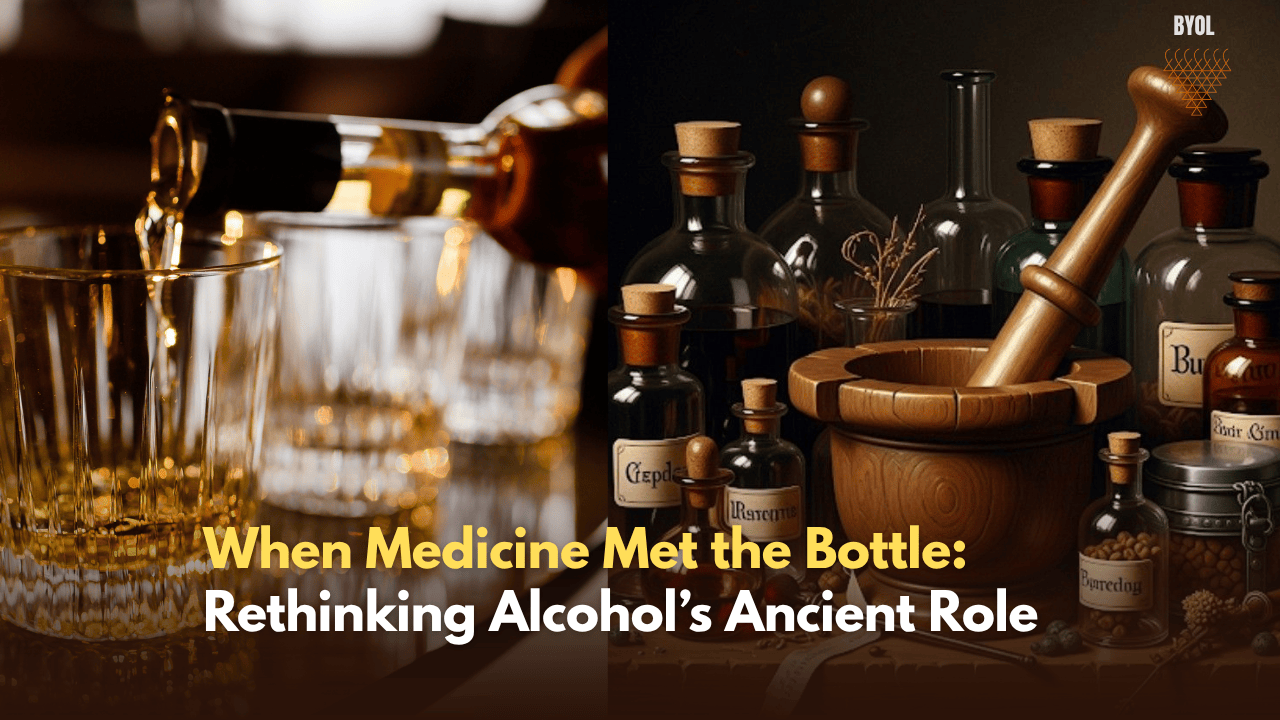In the world of medicine, timing can mean everything – especially in cancer detection. Imagine a powerful tool that doesn’t […]
When Medicine Met the Bottle: Rethinking Alcohol’s Ancient Role

Drinking in the past was social and ritualized, with less potent brews
We raise our glasses to celebrate, to cope, to connect – yet alcohol remains one of medicine’s oldest paradoxes. Once a symbol of ritual, bonding, and moderation in ancient cultures, From ancient feasts to modern bars, our connection to alcohol has evolved, but not always for the better. The World Health Organization (2024) reports that alcohol contributes to over 3 million deaths annually, representing 5.3% of all global deaths.
It linked to liver disease, cancer, cardiovascular illness, and mental health decline. Despite global awareness campaigns and “sober months,” harmful drinking remains one of the world’s most preventable health burdens.
But what if the solution lies not only in science but also in history?
Lessons from the Past: The Ritual of Moderation
Thousands of years ago, alcohol had a different identity. Ancient Greeks mixed their wine with water – never drinking it pure -as a mark of civility and control. In early Mesopotamia, Egypt, and Africa, fermented beverages had just 2–6% alcohol by volume (ABV) and were consumed during communal meals, harvests, and ceremonies.
Drinking was a shared, ritualized act, often tied to religion, fertility, and gratitude. It created social bonds and boundaries -preventing excess by making intoxication culturally shameful rather than celebrated. Anthropologists describe it as “drinking to belong, not to escape.”
The Modern Shift: Stronger Drinks, Weaker Connections
Fast forward to the 21st century, and the context has reversed. Today’s liquors are 5 to 10 times stronger – with spirits ranging 35–95% ABV – and drinking is increasingly solitary.
A 2022 U.S. study following 13,000 adults found solitary drinking among young people rose back to 25%, correlating with spikes in anxiety, depression, and alcohol use disorders.
Meanwhile, recent medical studies challenge the idea of a “safe dose.” A 2025 study in BMJ Evidence-Based Medicine found that even light drinking increases dementia risk, reinforcing that alcohol’s impact on the brain begins long before dependence develops.
Together, these findings show how modern drinking has shifted from social ritual to personal coping mechanism with devastating health consequences.
A Public Health Reset: Learning from Ancient Wisdom
Public health experts are now calling for a cultural reset – one that blends scientific insight with ancient restraint.
Encourage low-alcohol or fermented beverages instead of high-proof spirits.
Promote communal, mindful drinking rituals that discourage isolation and bingeing.
Shift focus from quantity to context, emphasizing when, where, and why people drink.
These approaches aren’t nostalgic – they align with principles in behavioral medicine and neuroscience, which show that social connection and structured habits protect mental health and reduce substance misuse.
Conclusion
Our ancestors viewed alcohol not as an escape, but as a means of unity. Their weaker, ritualized drinks came with rules, gratitude, and moderation. Today, our potent, solitary habits have turned the same substance into a public-health crisis.
Relearning those ancient customs may not eliminate alcohol’s risks, but it could restore something vital – connection, consciousness, and control.
To truly reset, perhaps we must not just drink less but drink together, with purpose.
References
- Gupta, S. Our Relationship with Alcohol Is Fraught: Ancient Customs Might Inspire a Reset. Science News, Oct 17, 2025.
- World Health Organization. Global Status Report on Alcohol and Health 2024. Geneva: WHO.
- BMJ Evidence-Based Medicine (Sept 2025). Light Alcohol Intake and Dementia Risk.
- Longitudinal Alcohol Consumption Study (U.S., 1977–2022).


